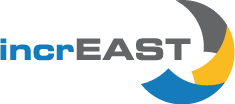(start of service navigation [to main navigation use key M, to content use key C])
![]() Home
| Русский
| English
| Contact
| Sitemap | Privacy | Imprint | Search
Home
| Русский
| English
| Contact
| Sitemap | Privacy | Imprint | Search
![]()
![]()
![]()
![]()
![]()
![]()
![]()
(end of service navigation)


23.07.2023 [News]
Project members are invited to also visit the IncoNet EECA Intranet (please check the "documents" section, subsection "project meetings") for final program, conference presentations, list of participants and more.
In order to foster bi-regional S&T partnership, in 2008 a consortium representing organisations from 21 European and Central Asian countries was formed to launch the “S&T Interna-tional Cooperation Network for Eastern European and Central Asian Countries” (IncoNet EECA). One of the core activities is to provide a platform for bi-regional dialogue process among relevant stakeholders representing the science communities, S&T policies, innovative industries and civil society in order to increase the mutual understanding and to develop joint scenarios for enhanced cooperation between EU-Member States, Associated Countries and the EECA countries. Against this background a conference was convened in Athens allowing scientists and policy makers from both regions to exchange experiences and views on the current state of the S&T cooperation, on present challenges and expectations and on concrete recommendations and open questions, which need in-depth reflections for enhancing the cooperation.
Over 60 experts from 29 countries (Armenia, Austria, Azerbaijan, Belarus, Belgium, Cyprus,Czech Republic, Estonia, Finland, France, Georgia, Germany, Greece, Italy, Iran, Kazakhstan, Kyrgyzstan, Moldova, Norway, Poland, Russia, Serbia, Spain, Sweden, Tajikistan, Turkey, Ukraine, USA, Uzbekistan) as well as specialists from the European Commission took part in the conference in June.
As one of the crucial points for the development of any knowledge based economy, the existence of a consolidated national STI policy was highlighted. In the EU Member States an appropriate but light tool for contributing to developing STI policies are international peer reviews, which are under implementation among them on a voluntary basis under the umbrella of the Open Method of Coordination. It is recommended to apply similar procedures by interested EECA countries building on their bilateral cooperation with individual EU Member States/Associated Countries.
Furthermore, at present there are limited policy initiatives to develop regional policy strategies and to identify regional research priorities and therefore further efforts building on existing regional frameworks is highly recommended. In this respect, coordination projects like the INCONETs are adding value to the dialogue and coordination among EECA countries.
Building on the experiences of this stakeholders conference and of existing dialogue formats of the EU with other regions of the world and - as a principle - complementing existing policy dialogue processes between individual EU-Member States and EECA countries and of individual EECA countries with the European Community, it is recommended to foresee flexible policy dialogue formats.
The limited knowledge of the existing capabilities in EECA is among the major obstacles for cooperation. In that field the studies, the mapping and the networking activities (e.g. brokerage events) supported by the European Commission could be extremely helpful. In addition, the setting up of schemes supporting participation to Conferences and/or short visits to western labs should be investigated by the interested EECA countries, possibly in partnership with EU MS.
Instruments to achieve the aims:
[PDF - 60.6 kB]
(URL: http://www.increast.eu/_media/Athens_conclusions_final.pdf)